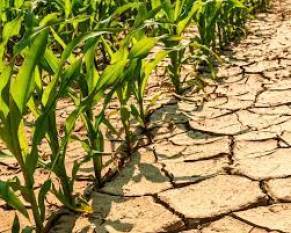MUMBAI, 16 October 2023: As our world grapples with the growing impacts of climate change, the future of agriculture is at a crossroads. Rising temperatures, shifting weather patterns, and extreme events are threatening food security worldwide. In response, scientists and farmers are turning to an essential solution: climate-resilient crops.
The urgency of climate-resilient crops
Agriculture is the backbone of our global food system, providing sustenance for billions of people. However, traditional crops are facing unprecedented challenges due to the changing climate. Prolonged droughts, heatwaves, heavy rainfall, and the spread of pests and diseases are causing crop failures and yield reductions.
Climate-resilient crops, designed to withstand these challenges, are critical to ensure a stable food supply. These crops are bred or genetically modified to adapt to changing climate conditions while maintaining or even increasing productivity.
Role of genetic modification
Genetic modification is one of the key approaches in developing climate-resilient crops. Scientists are working to identify and incorporate genes that confer resilience to various environmental stressors. Here are some examples:
-
Drought Tolerance: Drought-resistant crops are designed to thrive in water-scarce conditions. They can maintain productivity during periods of reduced rainfall, helping farmers mitigate the impacts of drought.
-
Heat Resistance: Heat-tolerant crops can withstand high temperatures without experiencing yield losses. These crops are crucial in regions where rising temperatures threaten traditional crop yields.
-
Pest and Disease Resistance: Climate change is altering the distribution of pests and diseases. Resilient crops can resist these threats, reducing the need for chemical pesticides.
-
Salinity Tolerance: Rising sea levels and increased soil salinity are a concern in some regions. Salt-tolerant crops can grow in saline soils, expanding arable land.
Success stories from India
India, with its diverse agro-climatic zones and large agricultural sector, has also witnessed the success of climate-resilient crops:
-
Bt Cotton: Genetically modified Bt cotton has become widespread in India, reducing the need for chemical pesticides and increasing cotton yields. It has significantly improved the livelihoods of cotton farmers.
-
Climate-Resilient Wheat: Indian scientists have developed heat-tolerant wheat varieties that can thrive in high-temperature regions. These varieties are helping maintain wheat production in the face of warming climates.
Success stories worldwide
Several climate-resilient crops have already made significant contributions to global agriculture:
-
Drought-Tolerant Maize (DTMAIZE): Developed by the International Maize and Wheat Improvement Center (CIMMYT), DTMAIZE is making a difference in regions with water scarcity. It has been adopted by farmers in Africa, where maize is a staple crop.
-
Golden Rice: Engineered to combat Vitamin A deficiency, Golden Rice is fortified with beta-carotene, a precursor to Vitamin A. It addresses malnutrition issues in many developing countries.
-
Flood-Resistant Rice: In Bangladesh, flood-prone areas have benefited from flood-resistant rice varieties. These crops can withstand flooding, ensuring a stable rice supply even during monsoons.
Balancing innovation with safety
While climate-resilient crops offer hope for food security, concerns about safety and long-term impacts persist. Critics worry about unintended consequences and potential ecological imbalances. Rigorous testing, regulation, and ethical considerations must guide the development and deployment of these crops.
Future prospects
The future of agriculture hinges on the continued development and adoption of climate-resilient crops. As climate change intensifies, the need for resilient food sources becomes increasingly urgent. Public-private partnerships, international collaboration, and responsible innovation are essential to ensure that these crops benefit farmers and consumers while safeguarding our environment.
Conclusion
Climate-resilient crops represent a beacon of hope in the face of climate change-induced challenges in agriculture. They offer the promise of feeding a growing global population, even in the midst of extreme weather events and shifting climates. As science and innovation continue to advance, climate-resilient crops will play a pivotal role in ensuring food security and sustainability for generations to come.
In this journey to safeguard our food supply and the future of farming, climate-resilient crops serve as a testament to human ingenuity and our ability to adapt to the changing world around us.
Image credit: geneticliteracyproject.org























